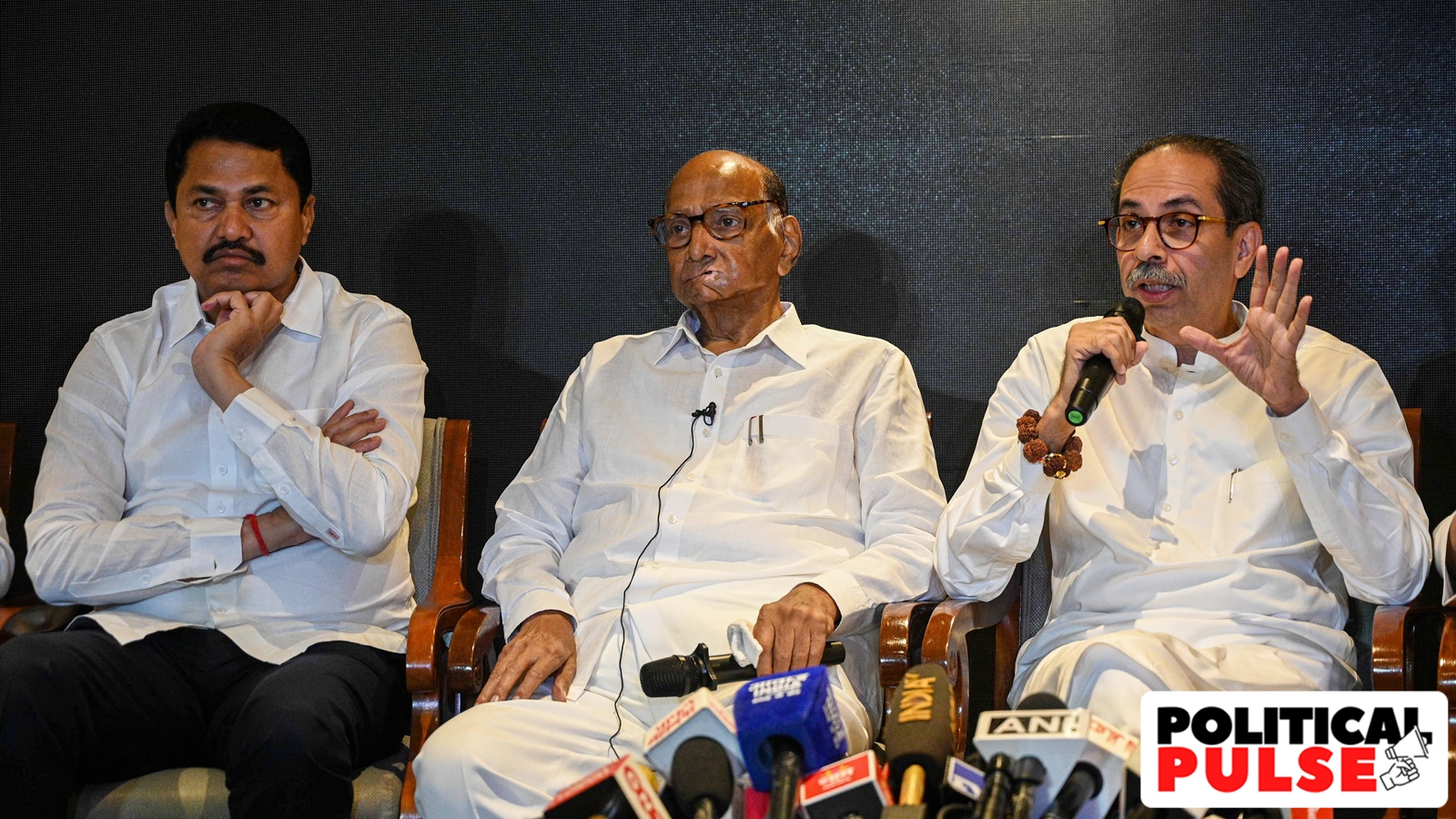 |
|
The upcoming Maharashtra Assembly elections are witnessing a power struggle within the Maha Vikas Aghadi (MVA) alliance, with each of the three partners – the Congress, Shiv Sena (UBT), and NCP(SP) – vying for dominance. While a compromise has been reached for the distribution of 255 out of 288 constituencies, with each party receiving 85 seats, it is Sharad Pawar's NCP(SP) that seems to have strategically positioned itself for a potential leadership role. This strategic maneuver highlights Pawar's political acumen and negotiation skills.
Initially, both the Congress and Shiv Sena (UBT) were pushing for a larger share of seats, aiming to secure at least 100 seats each to strengthen their claims for the Chief Minister's post. The Sena (UBT) promoted Uddhav Thackeray as their CM candidate, while the Congress boasted of several contenders, emboldened by their recent Lok Sabha poll success. In contrast, the NCP(SP), led by 83-year-old Pawar, adopted a quieter approach, focusing on candidate selection and campaign development. While initially aiming for 70-75 seats, the NCP(SP) now stands at 85, putting them on equal footing with their alliance partners, potentially giving them a shot at the CM post if they emerge as the leading party in the elections.
Pawar's strategic gains are evident in the party's Lok Sabha poll performance, where they achieved the highest strike rate. He effectively leveraged his political experience and negotiation skills to secure additional seats through strategic exchanges with his allies. For instance, the NCP(SP) conceded the Patan seat in Western Maharashtra to the Sena (UBT), securing seats in the Marathwada region in return. Furthermore, the party is set to induct Kishor Jorgewar, a sitting Independent MLA, into their ranks, further increasing their seat count. This approach reflects Pawar's calculated moves to consolidate his party's position within the alliance.
The NCP(SP) has adopted a strategic silence, withholding the release of their candidate list and handing over A & B forms to candidates for filing their nominations. This silence allows Pawar to maintain control and avoid external influences as he strategizes his party's campaign. Meanwhile, he has publicly praised Jayant Patil, the state NCP(SP) chief, highlighting his leadership qualities and projecting him as a potential CM candidate from his party. This move suggests a calculated strategy to position NCP(SP) as a viable alternative for the top position within the MVA.
Pawar's intervention proved crucial in bringing the three parties together to announce the 85-85-85 deal after the Congress and Sena (UBT) failed to agree on a seat-sharing formula. He stressed the importance of presenting a united front to avoid sending conflicting messages to the public. This decisive action highlighted his authority and influence within the alliance, further cementing the NCP(SP)'s position as a key player in the upcoming elections.
With the MVA alliance strategically positioned for the elections, the remaining 33 seats will be divided among smaller allies and the three major partners. While both the Sena (UBT) and Congress express optimism about reaching their respective targets of 100 seats, the NCP(SP), under Pawar's strategic leadership, stands as a formidable force, potentially shaping the outcome of the elections and the future political landscape of Maharashtra.
Source: As Congress-Uddhav Sena battled it out, how Sharad Pawar may have stolen a march
